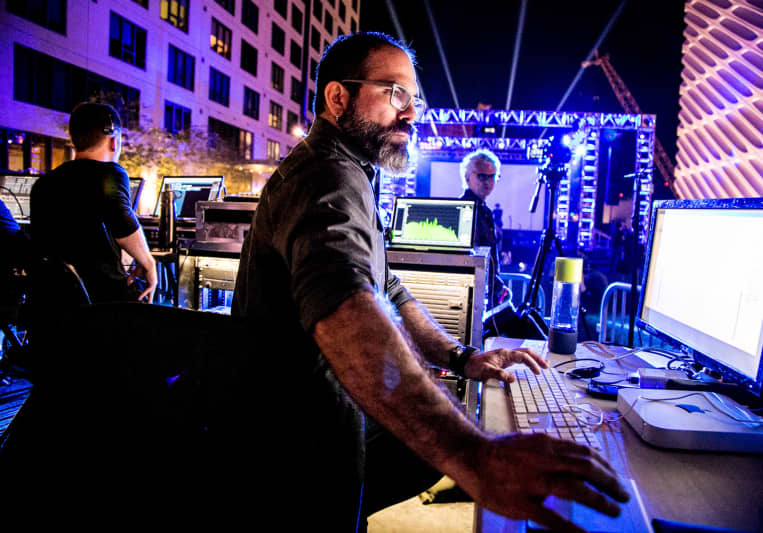
Music Production for Film, TV, Promotions, and Artist Collaborations.
Would love to hear from you. Click the contact button above to get in touch.
Interview with Heardrum Studios
Q: Tell us about a project you worked on you are especially proud of and why. What was your role?
A: I just completed the score for my first feature film, Eat Me by Jacqueline Wright and directed by Adrian Alex Cruz. I've engineered for Jonsi of Sigur Ros, Cory Henry of Snarky Puppy, Questlove, Jenny Hval, and Sound Designed systems for Clipping, and the Joshua Light Show.
Q: What are you working on at the moment?
A: I'm helping to produce and reduce broadband noise in the Los Angeles Broad Museum's Videos and website releases during the COVID-19 Quarantine. We just completed a Video on the works of Baldessari. Before that I was the lead Playback and site engineer for Karen O and Dangermouse's Lux Prima: Encounter at the Marciano Art Foundation.
Q: Analog or digital and why?
A: Both. Because, all the tools.
Q: What's the biggest misconception about what you do?
A: The biggest misconception people have about Sound Design is that the speakers in a Theater are always in the same place. A properly designed event or show specifies the appropriate speakers for EVERY show, and real work gets done to predict and align the system design for the appropriate application.
Q: If you were on a desert island and could take just 5 pieces of gear, what would they be?
A: My Apollo, Twin, my laptop, my Guitar, and my Neuman 100 capsules.
Q: What was your career path? How long have you been doing this?
A: I began by designing and composing for Dancers and Theatrical productions. I've worked for 15 years on theatrical productions that made their way as far as Japan, Hong Kong, Broadway, and even Uzbekistan. Animation, and Investigative journalism. My music and Designs have been heard by millions since 1999.
Q: What type of music do you usually work on?
A: I'm normally writing transition music for theater and stage... or scoring cues for film and TV.
Q: What's your strongest skill?
A: My strongest skill is editing, and soulful intent. If i'm writing, I tend to have a taste for the sublime and seek it out in the work I do.
Q: What do you bring to a song?
A: I bring arranging sensibility and experimentation. I like to change things up and work to support the intent of the original.
Q: Tell us about your studio setup.
A: I keep a ProTools Native System and 16 channels of Apogee Preamps. A collection of Neumann, Royer, AKG, and Radial mics and gadgets. I write music in Digital Performer with a 10 core Mac platform main record machine and two satellite sample farms running Vienna for scoring and orchestral arranging.
Q: Describe the most common type of work you do for your clients.
A: I'm a Sound Designer with one foot planted firmly in Theatrical Sound Design and Composition, and another foot planted in Post Production, Music Production and Commercial Sound Mixing.
Q: What's your typical work process?
A: I like to work with a client to really ascertain their goals and their workflow. Some producers want to work fast and have hard deadlines. Other producers are more exploratory. I feel like my best work is done when I have the time and trust of a producer who has laid out honest goals and a workable schedule.
- Post MixingAverage price - $200 per minute
- Post EditingAverage price - $200 per track
- Mixing EngineerAverage price - $400 per song
- Sound DesignAverage price - $500 per minute
- String ArrangerAverage price - $70 per song
- Composer OrchestralAverage price - $70 per song
- Keyboards - SynthAverage price - $70 per song
- ProTools Native
- Digital Performer



